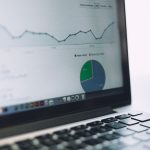Initially referring to various types of such big data management services, Big Data as a Service (BDaaS) has evolved into a booming market with solutions aiming to bring the power of big data analytics to a broader number of organizations and functions across several industries. SaaS companies need a new approach to big data in our current climate. The same old processes aren't … [Read more...] about 3 SaaS Big Data Trends You Need to Know About
Big Data
Learn everything you need to know about big data. Find out how companies are using this revolutionary technology and what it means for your business strategy.
Data Backup and VM Modernization: How-to Guide
Data is everywhere; it is something that we all rely on. It is used by individuals and large organizations that collect and store hundreds of files a day. While a Virtual machine backup is an excellent solution to keeping data and user credentials safe, it could use a bit of updating. That is what I am here with today, with a guide to VM modernization when dealing with data … [Read more...] about Data Backup and VM Modernization: How-to Guide
Data-Driven Startup Growth with Performance Marketing
IntroductionYou have a lot on your plate as a startup or emerging business. You're trying to build the right product, grow your user base, and keep your existing customers happy. You've got a lot of moving parts that all need attention at once-but few are as important as acquiring and retaining customers. As Sam Altman, one of the founders of YC, said, "Growth solves (nearly) … [Read more...] about Data-Driven Startup Growth with Performance Marketing
How Reliable is Big Data in a Constantly Changing, Unpredictable World?
Data's Backward-Looking Lens - Usefulness Versus Reliance In 2011, ailing US retailer JCPenney recruited Ron Johnson as CEO, the former president of Apple's retail operations, who is credited with pioneering the concept of the Apple Store. Johnson arrived at JCPenney intent on reinventing the brand and boosting sales. He implemented a broad refurbishment program, creating a … [Read more...] about How Reliable is Big Data in a Constantly Changing, Unpredictable World?
5 Strategies For Stopping Bad Data In It’s Tracks
For data teams, bad data, broken data pipelines, stale dashboards, and 5 a.m. fire drills are par for the course, particularly as data workflows ingest more and more data from disparate sources. Drawing inspiration from software development, we call this phenomenon data downtime- but how can data teams proactively prevent bad data from striking in the first place? In this … [Read more...] about 5 Strategies For Stopping Bad Data In It’s Tracks
What is big data?
Big data is a term that refers to the massive amount of digital data created and shared every day. Big data can transform how we live, work, and communicate. It can be used to improve everything from public health and urban planning to business and marketing.
Big data is also changing the way we think about privacy and security. The volume, velocity, and variety of big data present challenges and opportunities for organizations and individuals. Regardless, big data is here to stay, and its impact will only continue to grow in the years to come.
What is big data analytics?
Big data analytics is the process of turning large, complex data sets into actionable insights. Businesses use various analytical tools and techniques, including machine learning and statistical analysis, to do this.
Big data analytics can be used to improve decision-making in areas like marketing, operations, and customer service. It can also be used to identify new business opportunities and optimize existing processes. With the help of big data analysis, businesses can gain a competitive edge by using their data better.
Want to learn more about big data? Datafloq has courses available. Contact us to get started.
When was big data introduced?
The term big data was coined in the 1990s, with some giving credit to John Mashey for popularizing the term. However, the concept of big data has been around for much longer.
Where does big data come from?
In the early days of computing, scientists and businesses began to realize that the amount of data being generated was increasing exponentially. As a result, they began to develop new methods for storing and processing data.
Over time, these methods have become increasingly sophisticated and have played a key role in enabling businesses to make sense of vast amounts of information. Today, big data is used in various industries, from retail to healthcare, and its importance is only likely to grow in the years to come.
What are examples of big data?
One of the most common examples of big data is social media data. With over 2 billion active users, Facebook generates a huge amount of data every day. This includes information on user interactions, posts, and even location data. Analyzing this data can help companies better understand their customers and target their marketing efforts.
Another example of big data is GPS signals. These signals are constantly being generated by devices like cell phones and fitness trackers. When combined with other data sets, GPS signals can be used to provide insights into everything from traffic patterns to human behavior. Finally, weather patterns are another type of big data set. By tracking these patterns over time, scientists can better understand the impact of climate change and develop strategies for mitigating its effects.
How do companies use big data?
Companies use big data in marketing, product development, and customer service. By analyzing large data sets, businesses can identify patterns and trends that would be otherwise difficult to spot. For example, a company might use big data to track customer behavior patterns to improve its marketing efforts.
Alternatively, a company might use big data to improve its products by identifying areas where customers are most likely to experience problems. For instance, big data can be used to improve customer service by finding pain points in the customer journey. Ultimately, big data provides companies with a valuable tool for gaining insights into their business operations.







